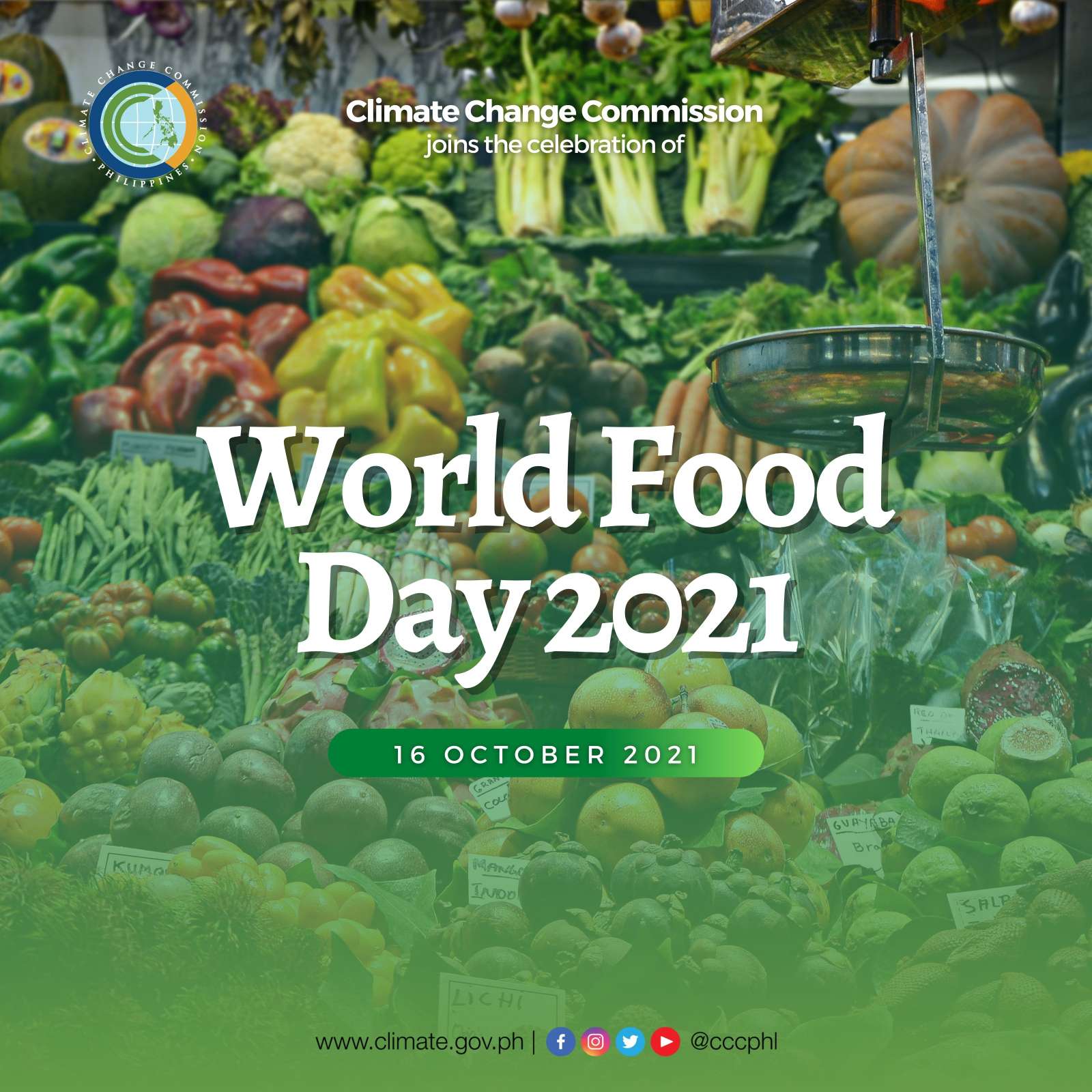
October 15, 2021 Friday

MANILA, 16 October 2021 — The Climate Change Commission (CCC) joins the call for an improved access to healthy, affordable and sustainable food diets, especially in the era of a global pandemic, in observance of World Food Day today with the theme, “Our actions are our future.”
According to the United Nations Food and Agriculture Organization (FAO), more than three billion people, or almost 40% of the world’s population, cannot afford a healthy diet, while almost 2 billion people are overweight or obese due to poor diet and sedentary lifestyle.
Moreover, about 14% of the world’s food is lost due to inadequate harvesting, handling, storage and transit, and 17% is wasted at the consumer level, and in turn, emits greenhouse gas.
With COVID-19, intensifying impacts of climate change, and unsustainable management of food, nutrition and food security are expected to worsen, and the vulnerable and marginalized sectors like smallholder farmers and indigenous peoples will be severely affected.
With this, the CCC urges all sectors – national and governments, businesses, civil society groups, academe, the youth, and individuals – to unite and play more positive roles to end hunger by raising awareness and by adopting a more sustainable food system that shall ensure the production and availability of affordable and nutritious food for every Filipino. These must be done while changing consumption behaviors.
The CCC emphasizes that existing good practices like the “Plant, Plant, Plant” and the Adaptation and Mitigation Initiatives in Agriculture (AMIA) programs of the Department of Agriculture should continue and be strengthened; the Gulayan sa Paaralan of the Department of Education should be supported at the local level; and climate-resilient farming practices should be scaled up to keep a steady supply of healthy food within communities.
The agency also points to the harmful effects of food waste, and presented easy steps to avoid it:
1. Shop smart by making a list and sticking to it;
2. Get only what you can eat;
3. Bring home leftovers;
4. Store your food correctly;
5. Save your seeds and either plant or share; and
6. Compost as much as you can.
The food we produce, purchase, cook, eat, and store impacts the entire food cycle. It is crucial to be mindful of our actions to secure brighter future of the environment and human beings.
World Food Day is celebrated every year around the world on 16 October in honor of the date of the founding of the FAO in 1945 and to tackle global hunger and eradicate it across the world. It also aims to bring awareness on the important global issues such as poverty, conflict and climate change that impact the world’s food supply and distribution.